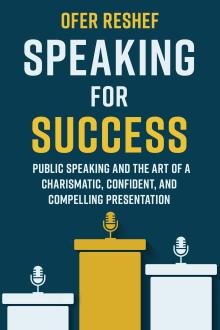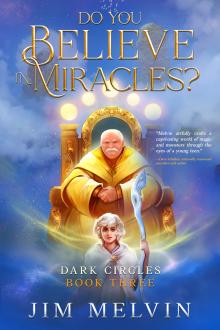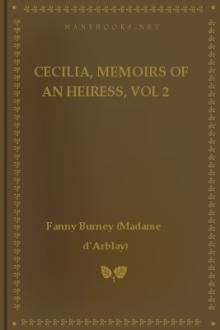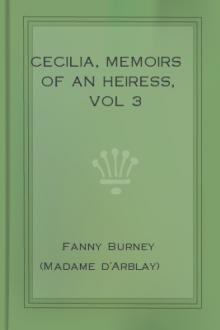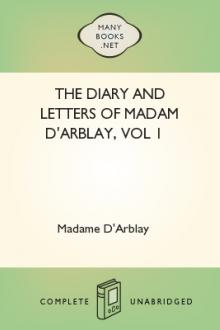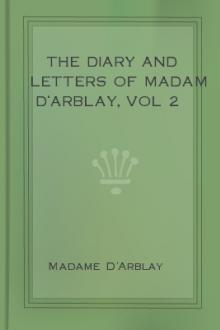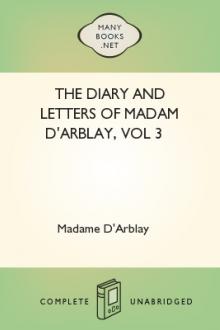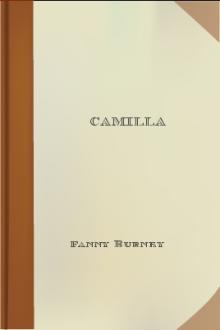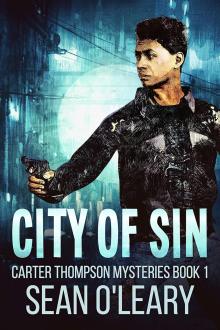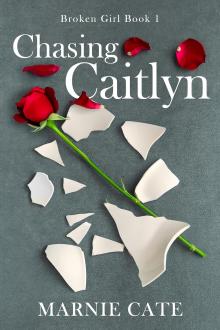Cecilia, Memoirs of an Heiress, vol 1
Cecilia, Memoirs of an Heiress, vol 1
Book Excerpt
not shackled by present ties, but at liberty to solicit her immediate acceptance. Beauty and independence, rarely found together, would attract a crowd of suitors at once brilliant and assiduous; and the house of Mr Harrel was eminent for its elegance and gaiety; but yet, undaunted by danger, and confiding in his own powers, he determined to pursue the project he had formed, not fearing by address and perseverance to ensure its success.
CHAPTER ii
AN ARGUMENT.
Mr Monckton had, at this time, a party of company assembled at his house for the purpose of spending the Christmas holidays. He waited with anxiety the arrival of Cecilia, and flew to hand her from the chaise before Mr Harrel could alight. He observed the melancholy of her countenance, and was much pleased to find that her London journey had so little power to charm her. He conducted her to the breakfast parlour, where Lady Margaret and his friends expected her.
Lad
FREE EBOOKS AND DEALS
(view all)Popular books in Fiction and Literature, Humor, Romance, Satire
Readers reviews
5.0
LoginSign up
Fanny Burney's delightful 18th-century comedy of manners inspired Jane Austen's title "Pride and Prejudice," and lovers of Austen should definitely enjoy it. Burney's writing is clear and surprisingly modern. She pioneered development of the English novel, and it's a real shame her works are so little remembered. Beautiful and bright, young Cecilia Beverley, an orphan, has been bequeathed a substantial legacy by her uncle. Her uncle's will stipulates that any man Cecilia marries must take her surname and appoints as her guardians three very different men: Devile, a haughty man of ancient pedigree with an exaggerated view of his self-worth, and little inclination to act on Cecilia's behalf, since doing so might require interaction with persons of less status; Briggs, a miser, who has charge of Cecilia's fortune till she comes of age, and won't let her have a penny more than her allowance before then; and Harrel, a spendthrift man of fashion who's married to Cecilia's childhood friend, Priscilla. By order of her guardians, Cecilia leaves her quiet country home, and goes to live with the Harrels, who lead a glittering and active social life, going out to parties and entertainments nightly, and spending much more than their income. Cecilia is much pursued by fortune hunters, among them the unpleasant Sir Robert Floyer, an associate of Harrel's whom the latter seems determined to throw into her path and the plotting Mr. Monckton, a country neighbor of Cecilia's, who, though married, is secretly determined to keep her single till his elderly wife dies. Ultimately, Cecilia meets and falls in love with Mortimer Devile, her guardian's son, and he with her, but he believes she's engaged to first one, then another of her other suitors. Once that's sorted out another impediment interferes: His prideful family will never countenance his giving up their name to marry Cecilia, no matter how much money comes with her. A long and complex novel, full of humor, "Cecilia" is richly populated with unique and well-drawn characters, types with parallels today. Burney takes satiric aim at the British high society of her era, with an attention to social issues unusual in romances. This novel isn't light reading — there are nearly 30 characters and three volumes — and certain passages that were likely hilarious to 18th-century readers seem overlong and peripheral to the action today, but it's well worth the effort.
- Upvote (0)
- Downvote (0)
"I have read that Fanny Burney had inspired Jane Austen and it's easy to see, by reading her work, this is true! They are really so much alike! As for Jane's fans all those 3 volumes are very delightful and important piece of literature indeed!!"
I show in my book "Jane Austen - a New Revelation" that the author of both Fanny Burney and Jane Austen's novels was Jane Austen's cousin and sister in law, Eliza de Feuillide. She could not publish under her own name as she was the illegitimate daughter of Warren Hastings, the Governor General of India.
I show in my book "Jane Austen - a New Revelation" that the author of both Fanny Burney and Jane Austen's novels was Jane Austen's cousin and sister in law, Eliza de Feuillide. She could not publish under her own name as she was the illegitimate daughter of Warren Hastings, the Governor General of India.
08/12/2015
What a surprise!!!
I really was amazed at the end of this book, because I consider the author ideas so modern, even nowadays, but as to my surprise, this wasn't the very end, it was in fact, just the end of the first volume!! Funny? Hahhaha... Yeah!!
This is Fanny Burney, and she has a way to catch the reader's atention that it's so difficult to stop reading it!! Now I'm at the end of the third volume and I may confess that is so worth reading, I'm looking forward to see what's going to happen!!
I have read that Fanny Burney had inspired Jane Austen and it's easy to see, by reading her work, this is true! They are really so much alike! As for Jane's fans all those 3 volumes are very delightful and important piece of literature indeed!!
I really was amazed at the end of this book, because I consider the author ideas so modern, even nowadays, but as to my surprise, this wasn't the very end, it was in fact, just the end of the first volume!! Funny? Hahhaha... Yeah!!
This is Fanny Burney, and she has a way to catch the reader's atention that it's so difficult to stop reading it!! Now I'm at the end of the third volume and I may confess that is so worth reading, I'm looking forward to see what's going to happen!!
I have read that Fanny Burney had inspired Jane Austen and it's easy to see, by reading her work, this is true! They are really so much alike! As for Jane's fans all those 3 volumes are very delightful and important piece of literature indeed!!
08/14/2009
A well mannered tale
The Author
Virginia Wolf referred to her as the “the mother of English fiction.” Dr. Samuel Johnson considered by some as the greatest literary critic of all, held her in the highest esteem. Her novels influenced Jane Austin, William Thackeray and most likely every Victorian writer who followed. Jane Austen took the title of her book Pride and Prejudice directly from the last chapter of this book.
Her appearance makes her look like the embodiment of the Victorian heroine young, pretty, petite, well mannered and fashionable; rather like a small porcelain figurine suitable for mounting on top the piano. Her writing on the other hand suggests her bust would make a very suitable replacement for Mr. Dickens in the library, metaphorically speaking of course.
If you like writers like Austin, Dickens, Eliot and Thackeray you can’t fail to like Fanny Burney, she is that good.
Last a warning, this is a long novel and the language is both rich and dense. But it is also warm-hearted and fun. I hope you give it a try.
The Author
Virginia Wolf referred to her as the “the mother of English fiction.” Dr. Samuel Johnson considered by some as the greatest literary critic of all, held her in the highest esteem. Her novels influenced Jane Austin, William Thackeray and most likely every Victorian writer who followed. Jane Austen took the title of her book Pride and Prejudice directly from the last chapter of this book.
Her appearance makes her look like the embodiment of the Victorian heroine young, pretty, petite, well mannered and fashionable; rather like a small porcelain figurine suitable for mounting on top the piano. Her writing on the other hand suggests her bust would make a very suitable replacement for Mr. Dickens in the library, metaphorically speaking of course.
If you like writers like Austin, Dickens, Eliot and Thackeray you can’t fail to like Fanny Burney, she is that good.
Last a warning, this is a long novel and the language is both rich and dense. But it is also warm-hearted and fun. I hope you give it a try.
04/18/2009
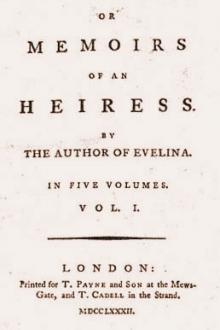
 Free Download
Free Download
